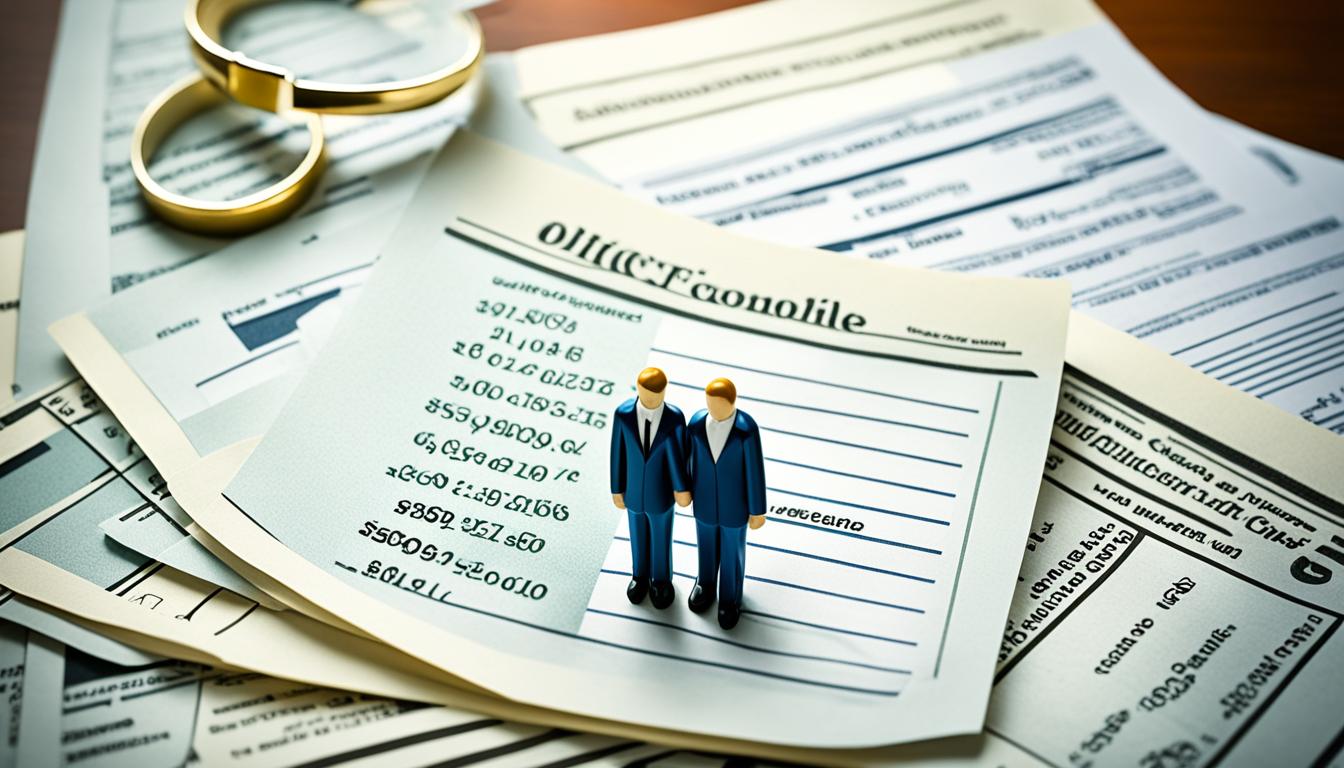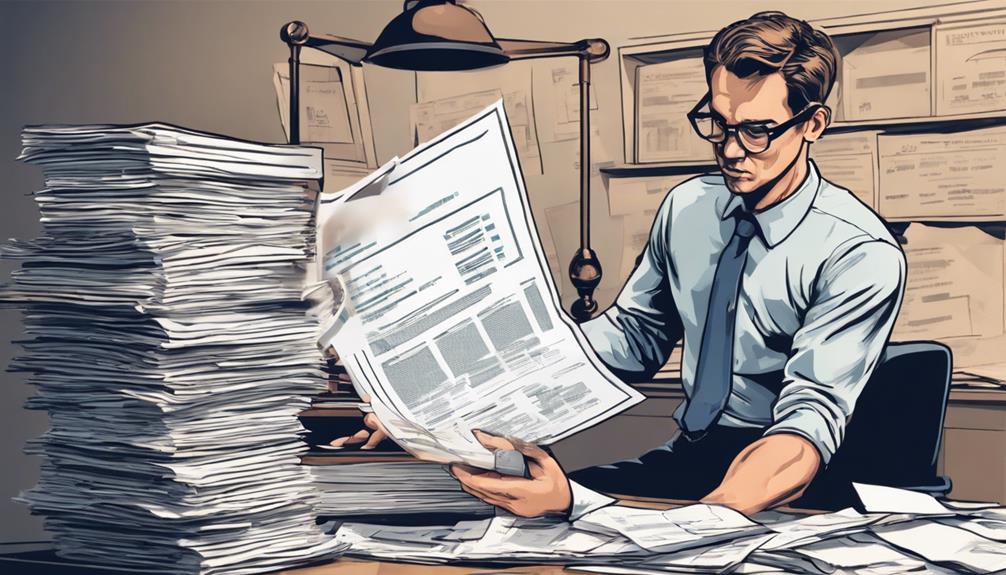To protect your credit during divorce, regularly review your credit reports for unfamiliar accounts or errors, and consider using credit monitoring services for alerts. Clear up any unresolved debts and ensure debts are properly divided to prevent future issues. Open separate accounts to establish independent credit and keep detailed records of all financial agreements. Staying proactive about monitoring and managing your credit can help you avoid common pitfalls—keep exploring to learn how to stay in control of your financial future.
Key Takeaways
- Regularly review your credit reports to spot unauthorized accounts and monitor for suspicious activity.
- Clearly divide debts and keep detailed records to prevent future disputes and ensure proper responsibility.
- Open separate credit accounts post-divorce to rebuild and maintain independent financial profiles.
- Dispute any inaccuracies or discrepancies promptly to protect your credit score and ensure correct reporting.
- Stay informed about local laws and use consistent documentation to reinforce your creditworthiness and avoid pitfalls.

Divorce can be a stressful process, but protecting your credit should remain a priority throughout. When you’re steering the emotional and legal complexities, it’s easy to overlook the importance of maintaining your financial health. One of the first steps you should take is to stay vigilant with credit monitoring. By regularly checking your credit reports, you can quickly identify any unfamiliar accounts, unauthorized charges, or missed payments that could harm your credit score. Credit monitoring services can alert you to changes in your credit profile, giving you the opportunity to address issues before they escalate. This proactive approach helps prevent identity theft and guarantees your credit stays on track, even amidst the upheaval of divorce.
Equally critical is understanding how debt division impacts your financial future. During divorce proceedings, debts—such as mortgages, credit cards, and personal loans—must be divided between you and your spouse. Clarifying which debts are assigned to whom is essential because unresolved or improperly allocated debts can lead to missed payments and negative marks on your credit report. Be sure to review all joint accounts and negotiate their division thoroughly. If an account remains joint, both parties are liable for the debt, regardless of who is supposed to pay it. This means that if your ex-spouse fails to make payments, your credit score could suffer, even if you’re no longer responsible for the debt.
To safeguard your credit, consider opening separate accounts after the divorce to establish independent credit lines. This will make it easier to manage your finances going forward and avoid any surprises from shared accounts. Additionally, communicate clearly with your ex about the status of existing debts and verify both parties understand their obligations to prevent any future disputes that could impact your credit. Proactive financial management can significantly reduce stress and help protect your credit during this transition. Being aware of social determinants of health and how financial stability influences overall well-being can further motivate diligent financial practices.
Keep detailed records of all financial agreements and payments related to debt division. Having documentation can be invaluable if disagreements arise or if you need to dispute any inaccuracies reported to credit bureaus. Establishing a credit history independent of your former spouse can help you rebuild and strengthen your financial profile over time. Regularly reviewing your credit reports, promptly addressing discrepancies, and confirming debts are correctly allocated will help you protect your credit rating. Staying informed about local laws and regulations regarding debt and credit can also be advantageous in case of disputes.
Furthermore, understanding the importance of consistent messaging in your financial documentation can help reinforce your creditworthiness and avoid potential misunderstandings. By staying proactive with credit monitoring and carefully managing debt division, you can shield yourself from unnecessary financial setbacks and set a solid foundation for your future financial independence.
Frequently Asked Questions
How Can I Freeze My Credit During Divorce Proceedings?
To freeze your credit during divorce proceedings, you can contact each of the three major credit bureaus—Equifax, Experian, and TransUnion—and request credit report freezes. This prevents unauthorized access to your credit reports. Additionally, consider enrolling in credit monitoring services to track any suspicious activity. Freezing your credit is a proactive step to safeguard your finances during this sensitive time, giving you peace of mind and control.
What Steps Should I Take if My Ex-Claims Joint Debt?
You sense trouble when your ex claims joint debt, and it’s a moment you can’t ignore. Start with a thorough credit report review to catch any inaccuracies. Then, implement debt allocation strategies—document everything, communicate clearly, and consider legal advice if needed. Staying proactive helps protect your credit, ensuring your financial future remains secure, even amid disputes. Don’t wait—take these steps now to safeguard your financial health.
Can I Change My Credit Card Passwords Easily?
Changing your credit card passwords is usually straightforward. You can log into your account management portal or mobile app, then navigate to security settings to update your password. For better password security, choose strong, unique passwords and avoid sharing them. Regularly changing your passwords helps protect your account from unauthorized access. Keep track of your login details securely, and consider enabling two-factor authentication for added security.
How Do I Notify Creditors About the Divorce?
You should notify your creditors directly about your divorce to guarantee your credit report updates accurately. Contact each creditor via phone or online portal to inform them of your change in circumstances. Request that they update the account information or split joint accounts if needed. Keeping your creditor notifications current helps prevent future disputes, safeguards your credit, and ensures your credit report reflects your new financial situation accurately.
What Are the Consequences of Ignoring Joint Accounts Post-Divorce?
Ignoring joint accounts after divorce can seriously impact your credit score and increase your debt liability. If you don’t close or divide these accounts, both parties remain responsible for payments, risking missed payments and late fees. This can damage your credit history and make future loans harder to get. You also risk the other person racking up debt that’s legally shared, further harming your financial stability. Act promptly to protect your credit.
Conclusion
Remember, steering your financial ship carefully during a divorce helps keep your credit smooth sailing ahead. By staying vigilant and making mindful choices, you gently steer clear of rocky waters that could cause trouble down the line. Keep communication open and don’t shy away from seeking advice if needed. With a little patience and attention, you can navigate this passage gracefully, ensuring your credit remains a steady anchor for your bright financial future.










